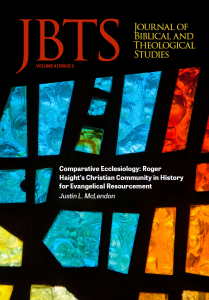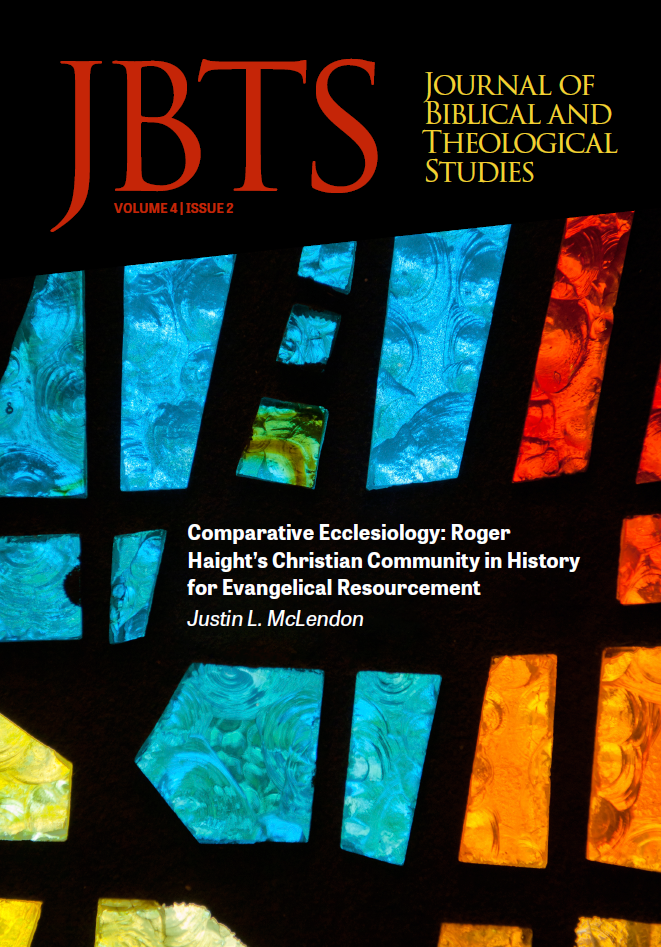Comparative Ecclesiology: Roger Haight’s Christian Community in History for Evangelical Resourcement
Justin L. McLendon
Justin L. McLendon is Assistant Professor of Theology at Grand Canyon
University and Grand Canyon Theological Seminary in Phoenix, Arizona.
Due in part to its late arrival within systematic theological loci, ecclesiology remains fertile soil for wide-ranging investigative inquiries from academic scholars and thoughtful clergy. Paul Avis, doyen of academic ecclesiology, positions the discipline in the forefront of modern theological attention, even claiming, “during the past couple of centuries, ecclesiology became a major theological discipline; today, at the beginning of the twenty-first century of the Christian era, it is at the heart of theological research and debate.” Ecclesiology lies at the heart of modern theological dialogue because the identity, purpose, and power of the church are inextricably connected to all other biblical and theological emphases. One can hardly discuss any salient aspect of Christianity without acknowledging its connection to the church as God’s people, or explain in some sense how God uses this eschatological people as the conduit through which he presently engages human history. As research
progresses to analyze global ecclesiological phenomena or specific issues within any longstanding church tradition, debates will persist as interlocutors grapple with multiform critiques and proposals….





